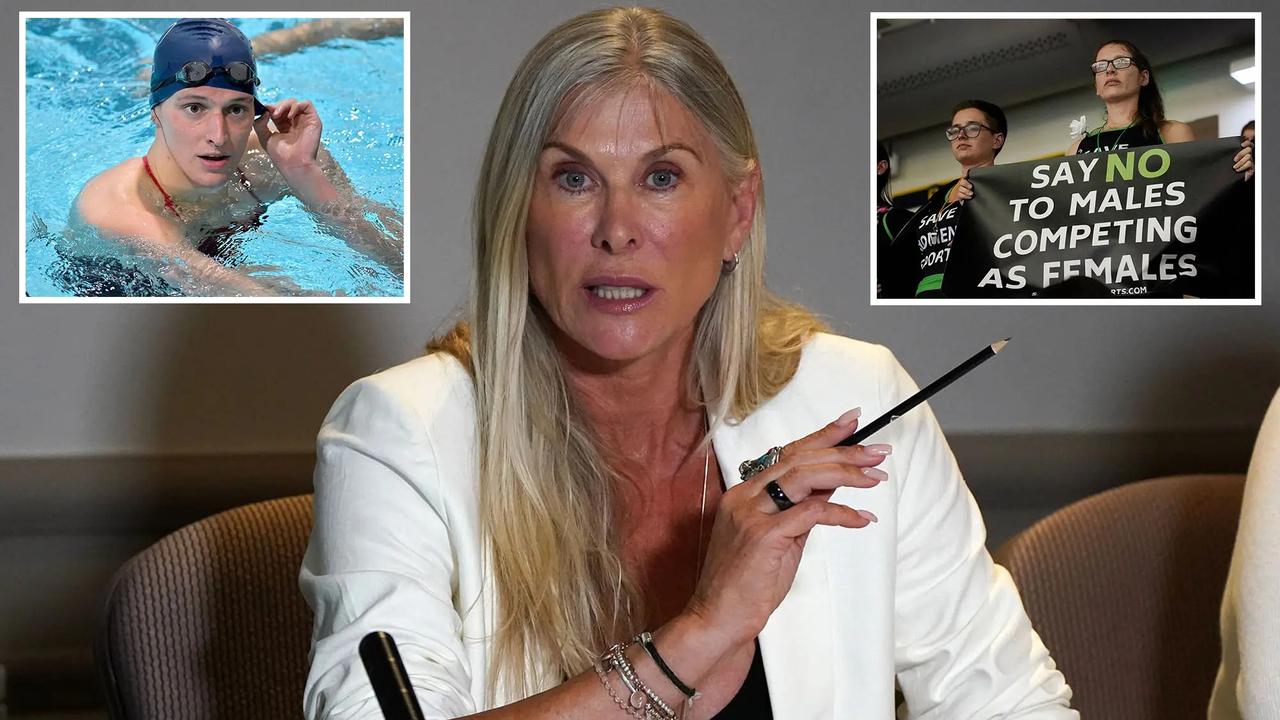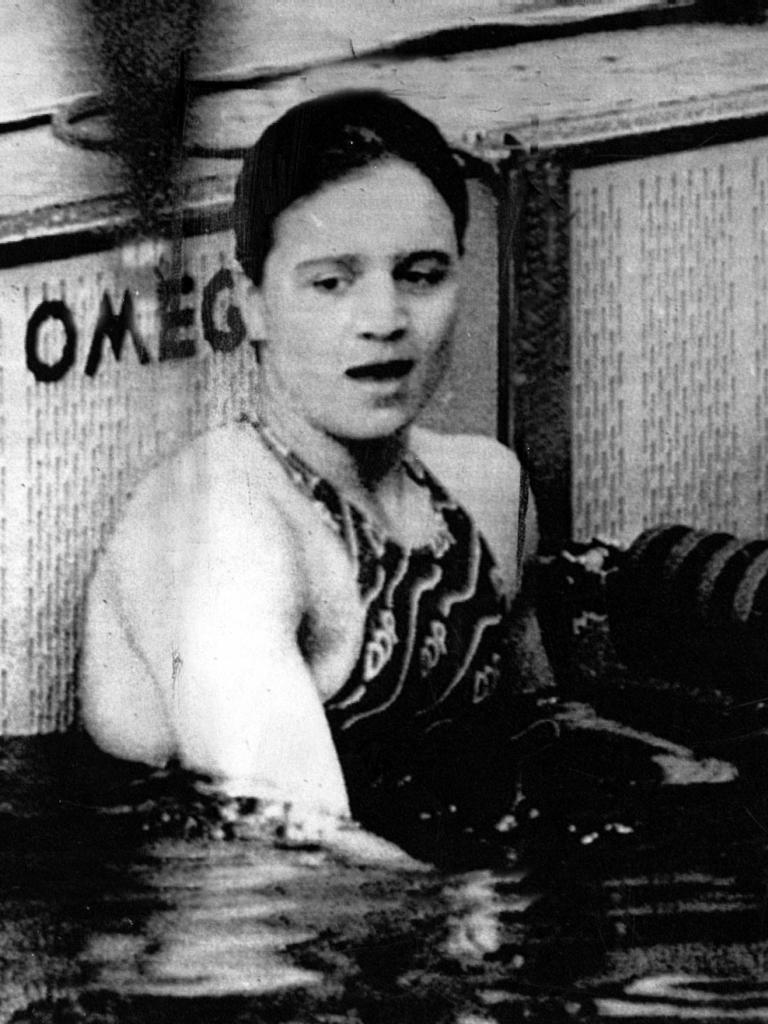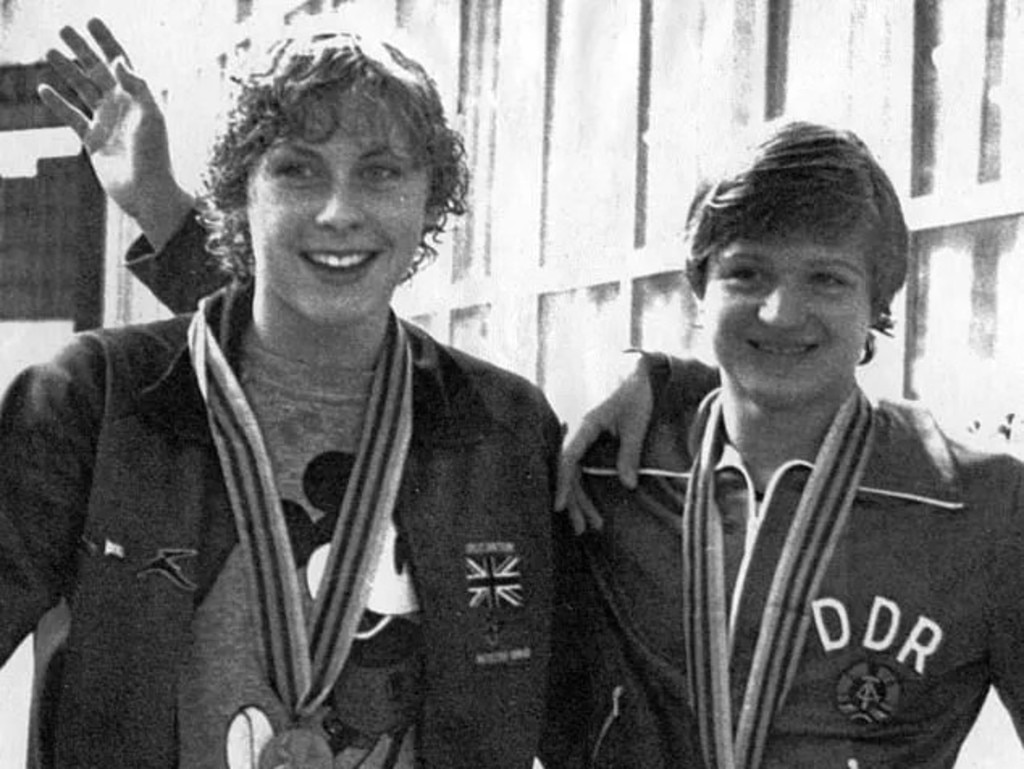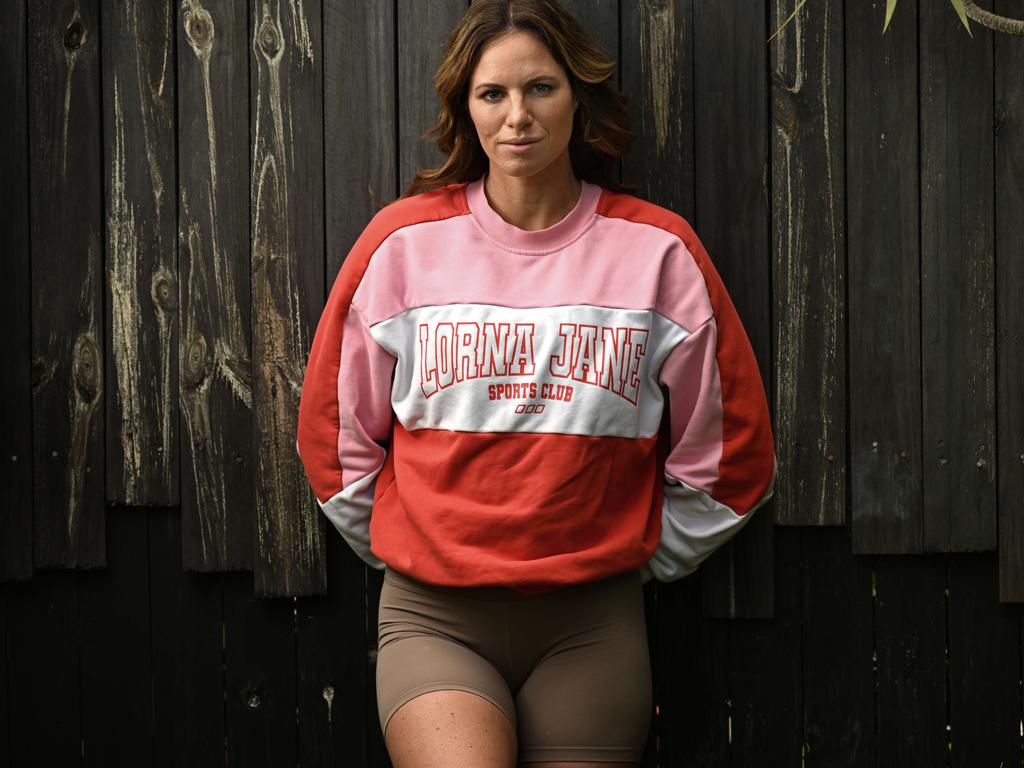‘The trans debate is toxic. It’s made my life hell. Female athletes must speak up’
It is 42 years since Sharron Davies won a silver medal in the Moscow Olympic swimming pool, yet she is still driven by the injustice that she did not get the gold.

Olympics
Don't miss out on the headlines from Olympics. Followed categories will be added to My News.
It is 42 years since Sharron Davies won a silver medal in the Moscow Olympic swimming pool, yet she is still driven by the injustice that she did not get the gold. She had the option thereafter of making peace with her past and putting it behind her, but has elected instead to raise her voice louder than ever. Even the death threats will not silence her.
This is where the transgender debate in sport has got to. Davies has campaigned vociferously for transgender women to be prevented from joining female competition. You may have thought on Sunday when Fina, swimming’s world governing body, banned transgender athletes from women’s elite events that her argument was won and her job was done. Far from it.
Davies will not settle until this is the position taken across all sports. Next up, she wants an uprising from athletes. “I think we have got to a point now where the female athletes need to stand up together,” she says. “They have immense power if they work together to say: ‘We want fair sport. We are entitled to it.’”
She takes aim primarily at the IOC for not doing what she believes is its job of policing Olympic sport. “The IOC never fails to disappoint me,” she says. “Decade after decade after decade.”
Yet she will take on any sport too - such as cycling, where the UCI, the world governing body, recently rubber-stamped rules that allow transgender athletes to compete in women’s competition. “They are enforcing on their female athletes that they accept a disadvantage before they start to race,” Davies, 59, says. “I am very much hoping that the female athletes will not put up with this.
“It has now got to start to fall on the shoulders of some of the athletes to say, ‘No, the evidence says that you are asking us to accept a disadvantage. That is not acceptable.’ ”
The zeal with which she is pursuing the cause is rooted way back in her teenage years, when the former East Germany was dominating her sport with a world-beating doping regime. And there are no winners from that Cold War competition.

The East German who beat Davies in Moscow was Petra Schneider. When Davies met her a decade and a half later, clearly an emotional encounter from both sides, Schneider offered to give her the gold medal.
“I said, ‘Thank you but it won’t mean anything unless they change the record books,’ ” she says. That is another of Davies’s campaigns. She still wants justice from her own days of competition.
The two battlefronts are different yet intricately connected because they are both about her belief in fair competition. She fears that another generation of female athletes could be denied the level playing field she missed out on in her youth.
“At the time of my history with the Germans, there was a whole generation of young girls that missed out on their medals, their trophies, their awards, their chances of careers because the IOC did nothing,” she says.
Davies describes the East German doping regime as being the equivalent to “putting girls through male puberty”. At the Moscow Olympics, where she won her silver, East Germany claimed 90 per cent of the women’s swimming medals. “And nobody did anything,” she says, incensed. “I have friends who came fourth in the Moscow Games and no one ever has heard their names. The reason I am so vocal is I could not sit by and let that happen again.”

In 1990, a year after the fall of the Berlin Wall, two East German Olympic swimmers went to Switzerland for an audience with Juan Antonio Samaranch, the IOC president at the time. They handed over their medals and requested that they be returned to their “rightful owners”. Samaranch, however, insisted that they keep them.
Still that situation remains. “I’ve been introduced as a silver medallist all my life,” Davies says, “and the IOC still has no intention of correcting that.”
Her frustration, she says, is heightened because the IOC is prepared to upgrade medals in more recent Olympic competition when the original medallists have tested positive for illegal substances. “And yet the IOC continually refuses to correct this period of history that they facilitated,” she adds.
Davies says that in campaigning for transgender athletes to be banned from women’s elite events, she has become a go-to figurehead for other female athletes. “A lot of athletes, coaches and parents come to me very distressed,” she says. “Parents don’t know how to help their children. I think we have to understand that this cannot be just about elite sport, because otherwise we ruin the pathway for young athletes to come through.”
She never made a decision to be this figurehead and it is certainly not a paid position.
I can’t tell you how proud I am of my sport @fina & @fina_president for doing the science, asking the athletes/coaches and standing up for fair sport for females. Swimming will always welcome everyone no matter how you identify but fairness is the cornerstone of sport https://t.co/1IaMkIFOkX
— Sharron Davies MBE (@sharrond62) June 19, 2022
However, she says: “I thought I’d not be able to live with myself if I did not stand up and voice my opinion. But it’s been very tough. A very small minority of very vocal trans activists have made my life hell. They have made threats on my life, on my kid’s life. They have rung my employers. They have rung up and tried to get me sacked. This is a very toxic debate.”
There are two points, here, which she says are intrinsic to her position.
One: “I totally empathise with anyone that has gender dysphoria, and sport must be inclusive - but fairness has to come before inclusion so we have to find better ways of being inclusive rather than throwing women’s sport under the bus.”
Two: those East Germans with whom she competed and who won the medals that she believes should have been hers - she regards them as victims too. Because of the drug regimes they were unknowingly placed on, they suffered horrific health issues in adulthood.
“Petra is really poorly,” Davies says. “She has heart problems, fertility problems. These young girls were guinea pigs. The IOC let them down horrendously. Unbelievably disgraceful. I think that is part of why they don’t want to acknowledge it - because they don’t want to acknowledge that they were so negligent for that period of time.”
The occasion when Davies first met her again, post competition, post Berlin Wall, was when she was in Germany filming a documentary for Channel 4. Davies took her baby daughter, Gracie, with her. “Petra was besotted with her,” she says. “She’d just been told she couldn’t have any more children because of her fertility issues. It was heartbreaking.”
THE TIMES
More Coverage
Originally published as ‘The trans debate is toxic. It’s made my life hell. Female athletes must speak up’









